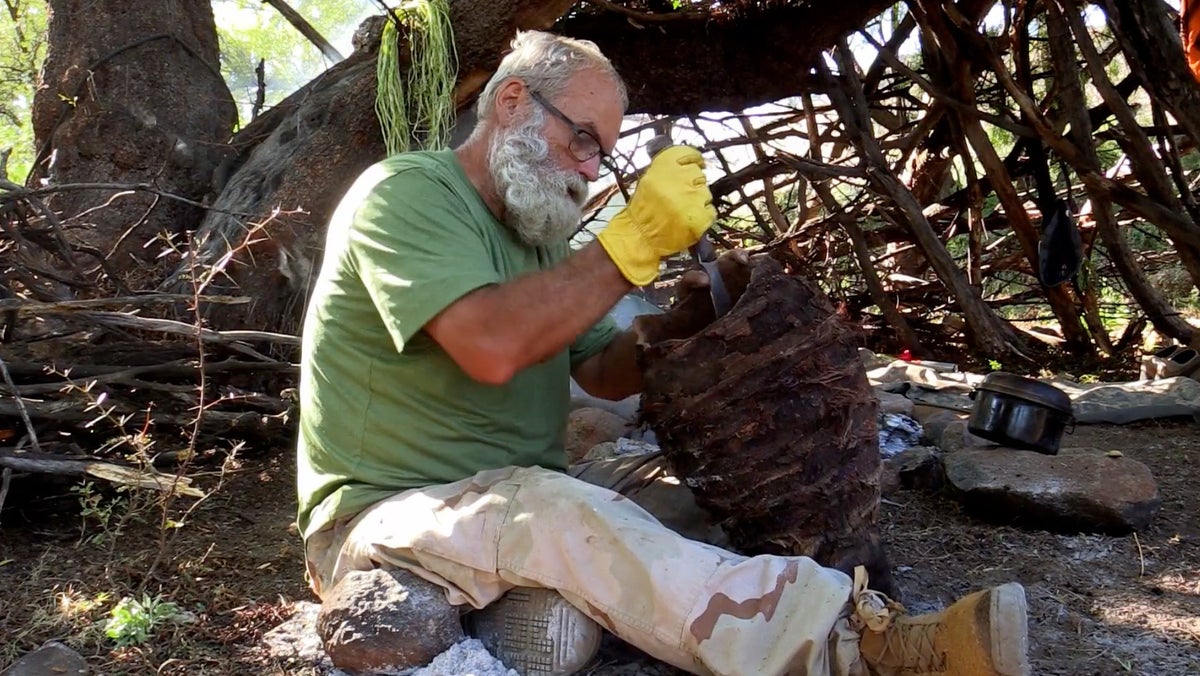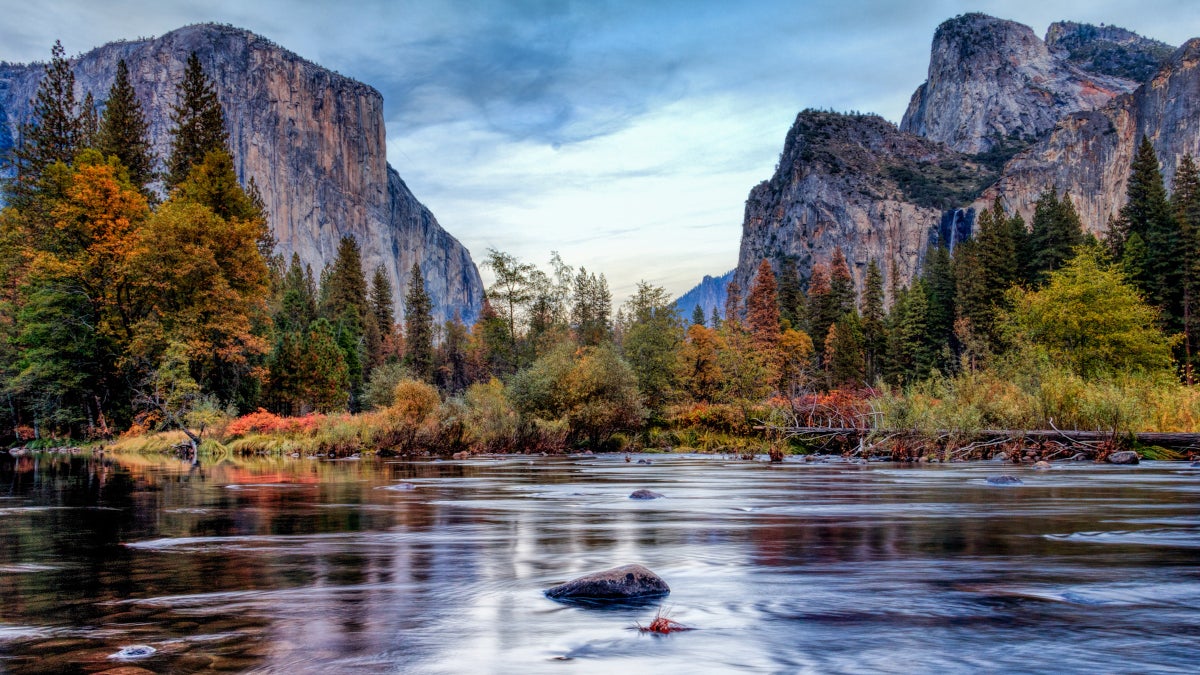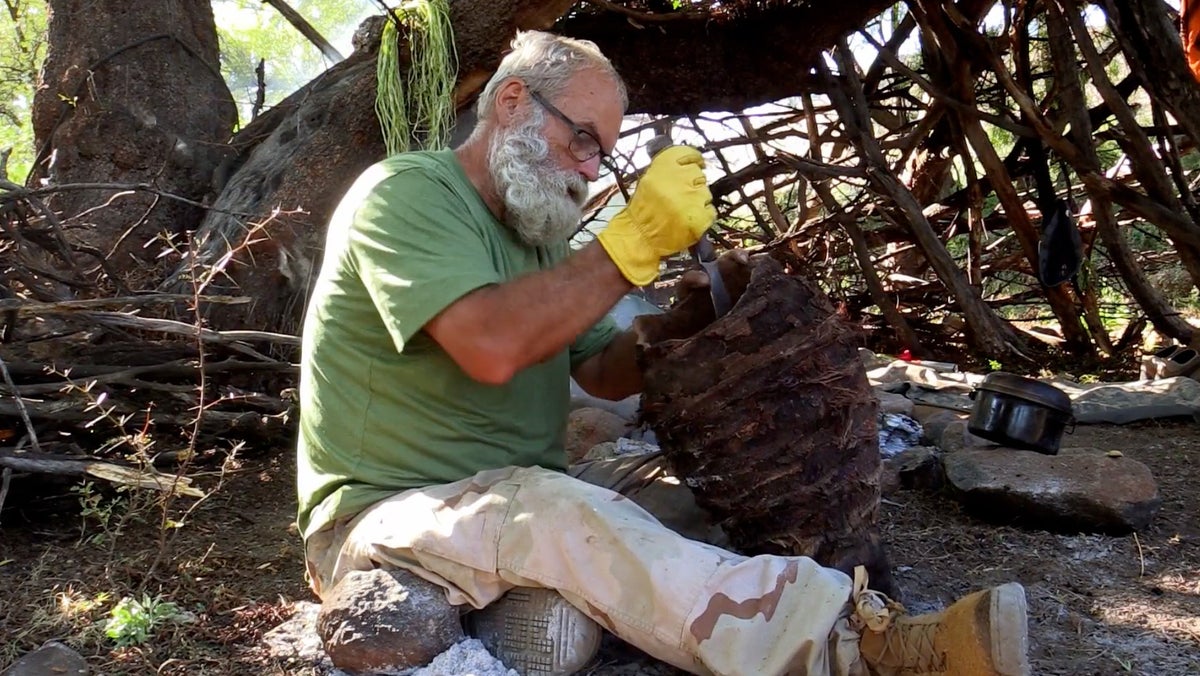
The surprise on Nathan Olsen’s face was legit.
The climax of the season finale of Alone Africa, which aired on August 21, occurred when Olsen saw his son, Isaiah, step from behind a bush and give him a mighty hug. On Alone, meeting a loved one out in the wild is the official signal that a participant has outlasted the nine others to win the $500,000 prize.
(Watch me discuss the season finale in the video below. Spoilers ahead.)
But the look of bewilderment on Olsen’s face was for another reason: he was only on day 34 of living in the backcountry.
Nobody has ever won Alone in that short a span. It’s like winning a marathon after running ten miles.
Olsen recently told Outside that the moment was bittersweet. He was elated to win, but wasn’t ready to leave South Africa’s Great Karoo desert.
“I had a lot of food stored. I had caught so many big fish toward the end that the acacia trees next to my house were just loaded with long strips of drying fish. I had everything I needed,” Olsen said. “When it ended suddenly and abruptly, I felt like I missed out on part of the experience.”
As an Alone completist, I echoed Olsen’s sentiment. I very much enjoyed Alone Africa because of the constant curveballs that the desert threw at the survivalists: dehydration, monsoon flooding, skittish animals, to name a few.
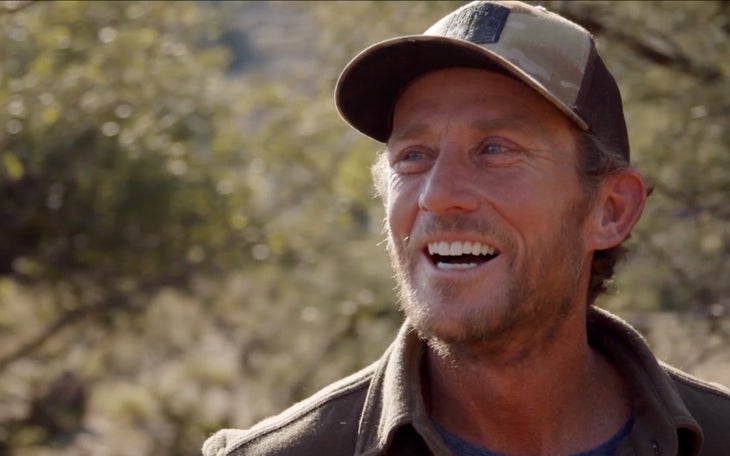
But I was also disappointed that the season didn’t go on longer. One of my favorite elements of Alone is watching the survivalists wrestle with isolation once they’ve endured two or more months of wilderness living. I feel like we missed out on the amount of introspection, rollercoaster-like emotional swings competitors go through while they build up an arsenal of survival skills and look for ways to entertain themselves to stay sane.
“One of the things I was most looking forward to was that significant amount of solitude, and I wanted to experience that,” Olsen told Outside. “I wanted to see what that would do for me and my family. Everything about staying long was attractive to me. So, when it got cut short, I was kind of bummed.”
Producers Were Also Worried
My fear that Alone Africa would end quickly arose in the early episodes. Four survivalists tapped out within the first five days. After 4 days, six were gone. Only two participants: Kelsey Loper and Olsen, made it longer than one month.
Compare that to season 11, which was staged near the Arctic Circle in Northern Canada. Three participants—Dub Paetz, Timber Cleghorn, and winner William Larkham—made it beyond 80 days.
It turns out I was not alone. I recently spoke to the show’s executive producer, Ryan Pender, who said that the production staff was also on pins and needles during the first two weeks. The high attrition rate brought back memories of Alone‘s first season, when four participants dropped within the opening week.
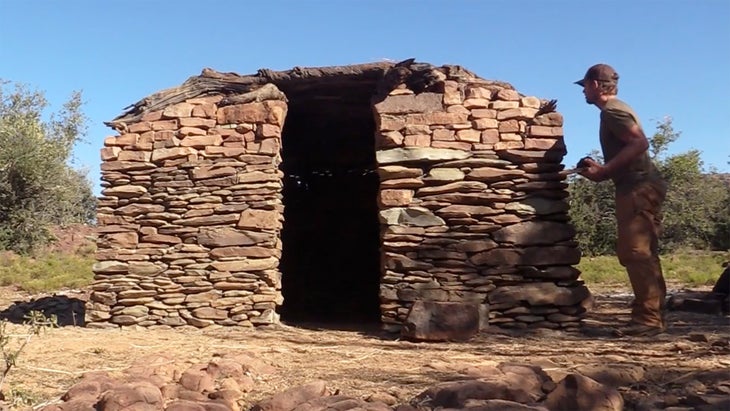
“We were monitoring, and there was a point where it was like ‘holy cow, this is season 1 all over again.’ It was a mass exodus,” Pender said. “We asked ourselves, ‘What is actually happening? What is the cause for this?’”
After internal discussion, Pender said the production decided not to step in and alter the competition, but rather to let the participants follow a normal season of Alone.
“You just have to let it play itself out,” Pender said.
As for why the season ended so quickly, Pender gave a variety of reasons. He said that some of the participants underestimated the challenge posed by South Africa’s Great Karoo. For instance: simply obtaining drinking water required round-the-clock work.
Securing food was also a challenge. The Great Karoo is home to dozens of species of edible animals. But the wildebeest, kudu, and gazelles are adept at avoiding predators.
Pender pointed to another challenge that everyone faced: experience. Since past seasons of Alone were held in cold or damp climates, participants could study how previous cast members succeeded.
“There’s no road map like there was in past seasons in Africa,” Pender said. “Nothing for new participants to look at to say ‘this is what I’d do, what I’d do differently.’ They just had to make their way.”
Challenges Presented by an Early Exodus
Pender told Outside that the onslaught of early tap-outs created some challenges for the Alone staff.
The crew of cameramen and rescue personnel stationed in South Africa worked long hours during the opening weeks as participants quit or were evacuated.
On day 4, two participants left: Colton Gilman of Montana and Jit Patel of New Zealand. The latter was suffering from an intense case of gastrointestinal stress.
Two people then quit on day 5: Pablo Arguelles of Florida and Will Lamb of Texas. Lamb required an emergency extraction after he suffered from acute colitis. Alone sent a team of medical professionals to help Lamb in the middle of the night.
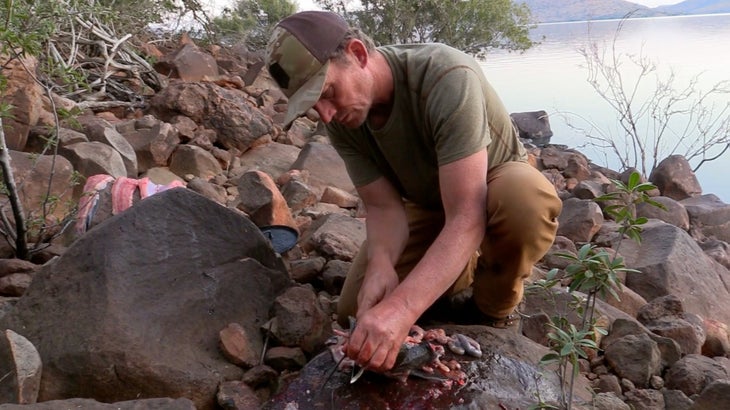
“The crew in the field, just trying to keep up with the exodus, was really difficult,” Pender said. “You have to go out and retrieve them, make sure they’re OK. Then, we go through their footage to see what their story is, and do interviews on the backend to cover all of those story points. There’s a lot going on.”
With Alone, participants film themselves living in the wild, and they then send the footage of themselves back to editors, who stitch the video clips into a coherent episode that tells a story. Pender said that editors for Alone Africa had much less footage to work with compared to a normal season.
“When somebody leaves you have to do them justice and tell their story as best as you can to let the people back home understand what they went through. Telling that takes time away from other stories going on at the same time.”
I noticed the difference. While watching Alone Africa, the timeline of dates often jumped around. Rather than proceed in a linear fashion—day 1, day 2, etc.—the action often jumped backwards in time.
The episodes also felt shorter. The opening two episodes surpassed one hour run times. After that, the episodes ended around the 40-minute mark.
Will Alone Return to the Desert?
Given the early exits and the pressures placed on the show’s production team, is a warm climate simply too hard for Alone? Has the production team sworn off the desert?
I posed the question to Pender.
“Oh no, definitely not,” he said. “We’re looking at this as being akin to season 1. We’ll go back, reassess, and then if and when there’s a season 14, we’ll decide which way we’re going to go.”
Alone has not revealed the setting for its 13th season, which is likely to air in 2026. The show is famously tight-lipped about future locations.
But Pender said that Alone Africa’s success was proving to future survivalists that the show could operate in the desert—even if the season was shorter than any in the show’s history.
“There is a roadmap now for the desert,” he said. “And I think there will be a hunger to go back again. Future folks will have an idea of what they’re walking into, and if they’re armed with better information, they’re better off.”
The post ‘Alone’ Africa Was the Shortest Season Ever. What Does It Mean for the Show? appeared first on Outside Online.











